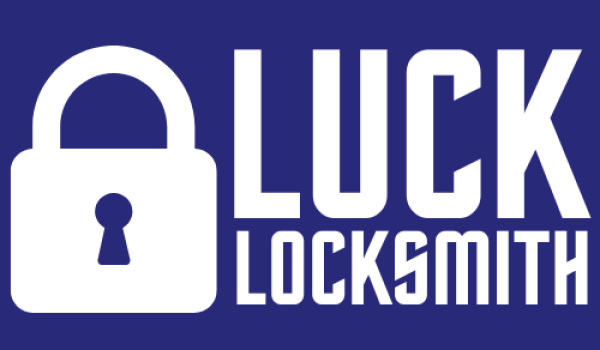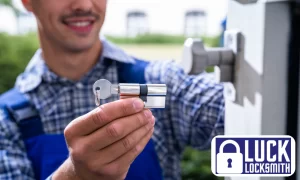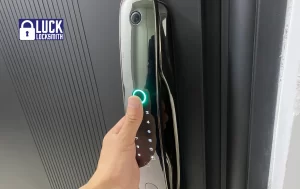Rekeying your locks is a straightforward but very effective security protection that is sometimes ignored, even though these tools are essential. Rekeying could be the answer if you’re worried about the security of your property or if you just want to improve your security at a reasonable cost. We’ll discuss what rekeying is, how it’s different from changing locks, and its many advantages in this post of Luck Locksmith. Now let’s get started!
What Does Rekeying Your Locks Mean?
The process of rekeying a lock involves changing its internal workings so that a different key can open it. In contrast to changing a lock, which necessitates replacing the complete lock assembly, rekeying locks just modifies the internal structure of the lock, rendering the old key inoperable and requiring a new one to gain entry.
How Does Rekeying Work?
A locksmith replaces the tumblers or pins inside the cylinder of the lock during the rekeying procedure. By rearranging these internal parts, the locksmith makes sure that the lock can only be opened with a new key. Without having to replace the entire lock, this procedure effectively “resets” the lock, making any prior keys useless.
Rekeying vs. Changing Locks: What’s the Difference?
Rekeying and lock replacement are sometimes confused, however, they involve quite different procedures:
- Rekeying: involves changing the lock’s internal tumblers or pins to make a fresh key usable. The lock is configured with a different set of keys, but it is otherwise unchanged.
- Changing Locks: This means that the complete lock mechanism needs to be replaced with a new one, frequently because of wear and use, damage, or a desire to switch to a different model or brand.
When Should You Consider Rekeying Your Locks?
Several problems might remind you to rekey your locks, including:
- Moving into a new home: There’s no way to know how many people have copies of the old keys.
- Lost or stolen keys: To confirm that whoever finds or takes your keys cannot access your property.
- After renovations: If contractors or other workers have access to your keys, it’s wise to rekey the locks afterward.
- Upgrading security: Simply wanting to enhance your security can be a reason to rekey.
Key Benefits of Rekeying Your Locks
Rekeying offers multiple advantages, making it a suitable choice for homeowners and business owners alike.
Cost-Effectiveness
The price of rekeying is one of its biggest advantages. It’s much less expensive than changing all the locks because you’re not replacing the complete lock. Rekeying is therefore the best choice for anybody looking for an affordable approach to increase security.
Improved Security
By making sure that previous keys can no longer be used to enter the building, rekeying significantly increases the security of your property. It’s an easy method to “refresh” the security of your locks without having to shell out for a whole new system.
Convenience and Control
By enabling you to utilize a single key for all of your locks, rekeying can make your life easier. With this “keyed-alike” approach, you may safeguard your property more conveniently by avoiding the need to carry several keys for different locks.
Quick And Simple Process
Rekeying is a quicker operation that may be finished in a matter of minutes for each lock, as opposed to replacing the entire lock. It’s an effective way to address urgent security issues because it doesn’t interfere too much with your everyday schedule.
Can You Rekey All Types of Locks?
It is possible to rekey most typical pin-and-tumbler locks, which are frequently seen in both home and business settings. Rekeying certain specialized or high-security locks can be more difficult, though, as they might call for special instruments or methods. It is advisable to seek a professional locksmith in such circumstances.
DIY Rekeying vs. Professional Services
Although there are DIY rekeying kits available, employing a professional locksmith guarantees that the work is completed securely and accurately. Locksmiths are skilled in working with a wide range of lock types and are equipped to manage any issues that may come up during the rekeying procedure.
Advantages of Professional Rekeying
- Expertise and Tools: Locksmiths come equipped with the right tools and skills for the job.
- Quality Assurance: Ensures the lock is rekeyed without damage.
- Additional Security Advice: Professionals can suggest other ways to enhance your security.
How Often Should You Rekey Your Locks?
Although there isn’t a specific frequency for lock rekeying, it’s a good idea to give it some thought every few years or following big events like a move or security incident. You may maintain control over who has access to your property by routinely rekeying your locks.
The Cost of Rekeying vs. Lock Replacement
Rekeying is typically less expensive than changing the locks. Depending on the type of lock and the locksmith’s fees, rekeying a lock might cost anywhere from $10 to $50 per lock. On the other hand, replacing a lock usually costs between $50 and $200 or more, particularly if you go with high-security locks.
Rekeying for Residential Properties
To keep their home more secure without having to replace every lock, homeowners frequently decide to rekey their locks. Rekeying can be an excellent preventive precaution, regardless of how long you’ve lived in your home.
Rekeying for Commercial Properties
Rekeying locks is an effective approach for organizations to limit access. Rekeying ensures that only current employees have access, especially if you’ve had staff turnover or distributed a lot of spare keys. It may also be a component of a more comprehensive security plan that includes master key systems for easier administration.
Common Myths About Rekeying Debunked
- Myth: “Rekeying is the same as changing locks.”
Truth: While they serve a similar purpose, they are different processes with distinct benefits. - Myth: “Rekeying makes locks less secure.”
Truth: Rekeying does not compromise the lock’s integrity; it simply alters the key configuration. - Myth: “Any lock can be rekeyed.”
Truth: While most can be, some specialized locks may not be suitable for rekeying.
How to Choose the Right Locksmith for Rekeying
Make sure the locksmith you choose has a solid reputation, is licensed, and has experience. Inquire about their rekeying procedure, prices, and any warranties they may have on their labor.
Other Security Measures to Consider Alongside Rekeying
Rekeying is a useful security measure, but it offers even more protection when combined with other upgrades like alarm systems, smart locks, or deadbolts.
Conclusion
Rekeying your locks is easy with Luck Locksmith, an affordable, and effective approach to improving the security of your home. Rekeying is an affordable option that doesn’t necessitate changing all of your locks, whether you’re moving into a new house, coping with a lost key, or simply wanting to increase your security. This simple measure could be the key to keeping your house or place of business safe, so don’t undervalue it.




